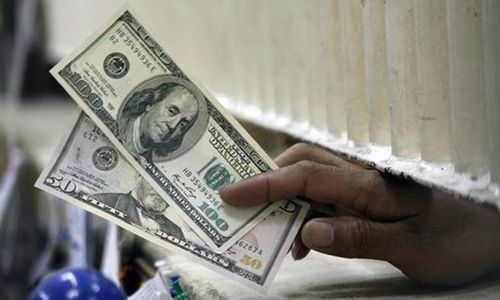DAVOS: The number of billionaires should be reduced by half by 2030 through higher taxes and other policies to make the world more equal, Oxfam said on Monday as global elites meet in Davos.
The aid group made its plea as the Swiss Alpine village hosts political leaders, CEOs and celebrities for the week-long World Economic Forum starting on Monday.
In a report titled “Survival of the Richest”, Oxfam said billionaires had doubled their wealth over the last 10 years, with the wealthiest one per cent gaining 74 times more than the bottom 50pc.
The very wealthy have grown richer amid the cost-of-living crisis sparked by the Covid pandemic and soaring food and energy prices following Russia’s invasion of Ukraine, the report said. Since 2020, billionaire wealth has surged by $2.7 billion a day even as inflation outpaced the wages of at least 1.7 billion workers worldwide, Oxfam said.
Food and energy companies, it noted, had more than doubled their profits last year. Oxfam called for taxes at rates that progressively redistribute wealth and reduce extreme inequality.
For starters, it said, “the world should aim to halve the wealth and number of billionaires between now and 2030, both by increasing taxes on the top one per cent and by adopting other billionaire-busting policies”. Such steps would bring billionaire wealth and numbers back to levels last seen in 2012.
“The eventual aim should be to go further, and to abolish billionaires altogether, as part of a fairer, more rational distribution of the world’s wealth,” it said. Oxfam said higher taxes on dividends as well as “one-off solidarity” wealth and windfall taxes should be introduced “to stop crisis profiteering”.
It also called for a permanent tax increase on the richest one per cent, with a minimum 60pc tax on their income from labour and capital.
Citing a report by the US investigative news group ProPublica, Oxfam said many of the world’s richest people paid hardly any taxes, with Tesla boss Elon Musk facing a “true tax rate” of just 3.2pc between 2014-2018 and Amazon founder Jeff Bezos paying less than one per cent. In a stark comparison, a market trader in Uganda who works with Oxfam pays 40pc of her profits in tax, the charity said.
Worldwide, only four cents in every tax dollar now comes from taxes on wealth. Half of the world’s billionaires live in countries with no inheritance tax for direct descendants.
They will pass on a $5 trillion tax-free treasure chest to their heirs, more than the GDP of Africa, which will drive a future generation of aristocratic elites. Rich people’s income is mostly unearned, derived from returns on their assets, yet it is taxed on average at 18pc, just over half as much as the average top tax rate on wages and salaries.
According to new analysis by the Fight Inequality Alliance, Institute for Policy Studies, Oxfam and the Patriotic Millionaires, an annual wealth tax of up to 5pc on the world’s multi-millionaires and billionaires could raise $1.7 trillion a year, enough to lift two billion people out of poverty, fully fund the shortfalls on existing humanitarian appeals, deliver a 10-year plan to end hunger, support poorer countries being ravaged by climate impacts, and deliver universal healthcare and social protection for everyone living in low- and lower-middle-income countries.
Published in Dawn, January 17th, 2023












































